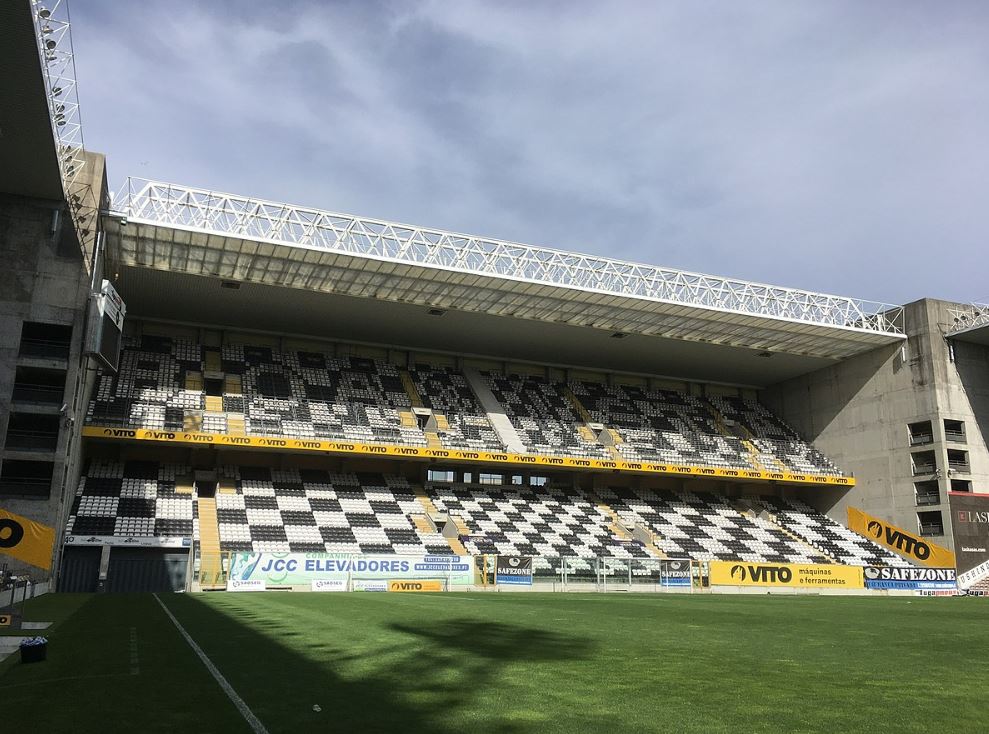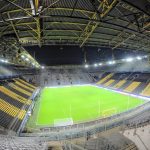Portugal is another European country that is crazy about association football. It’s by far the most popular sport in the country and there is a good reason for that.
The country on the Iberian Peninsula has produced some of the best football players in history, including the legendary Eusebio and Christiano Ronaldo, to name just a few.
The local competition is pretty good as well and ranks among the top 10 best competitions in Europe.
Several football clubs in Portugal such as FC Porto, S.L. Benfica, and Sporting CP have been very successful in football history with several European Cup wins between them.
For a country with just over 10.35 million inhabitants, it’s home to many amazing stadiums. This means that football is deep-rooted in the country’s culture.
So what are some of the biggest stadiums in Portugal? Let’s check them out!
1. Estádio da Luz
- Location: Lisbon
- Capacity: 64,642
The Estádio da Luz, officially the Estádio do Sport Lisboa e Benfica, is located in the city of Lisbon, the capital city of Portugal. Specifically, it is located in the neighborhood of Benfica, which is situated in the northwestern part of the city.
It is the magnificent home stadium of the football club S.L. Benfica. It has a seating capacity of 65,647 and was built in 2003. It has hosted numerous football matches, including the UEFA Champions League final in 2014, and it is also used for concerts and other events.
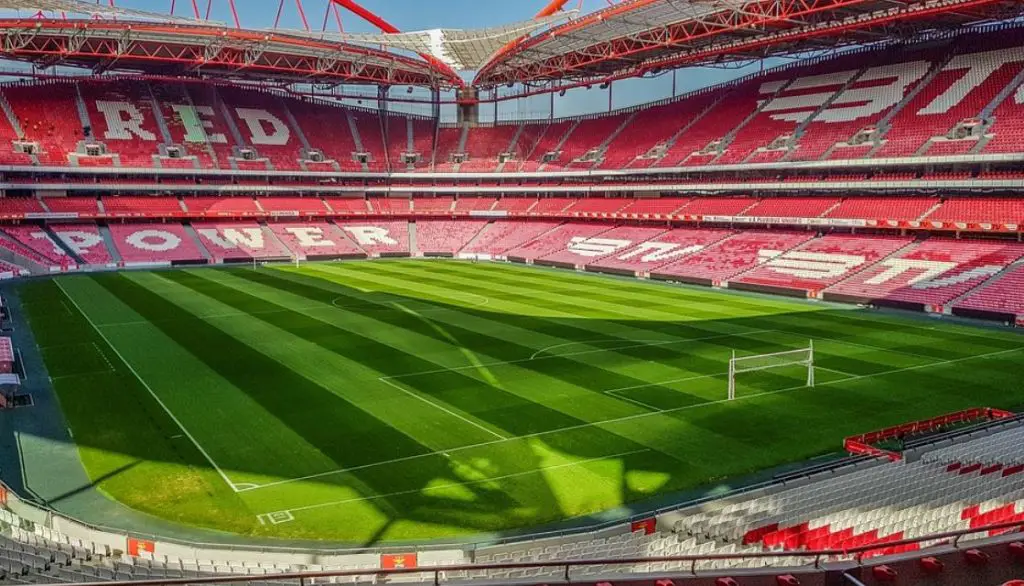
2. Estádio José Alvalade
- Location: Lisbon
- Capacity: 50,095
The Estádio José Alvalade is the home stadium of the football club Sporting CP, another major football club in Portugal that is also located in Lisbon. It has a seating capacity of 50,095 and was constructed between 2001 and 2003.
The stadium was considered to be one of the most modern stadiums in Europe upon completion, Especially because of its unique design that includes a distinctive circular shape. It has hosted numerous important football matches, including the UEFA Cup final in 2005.
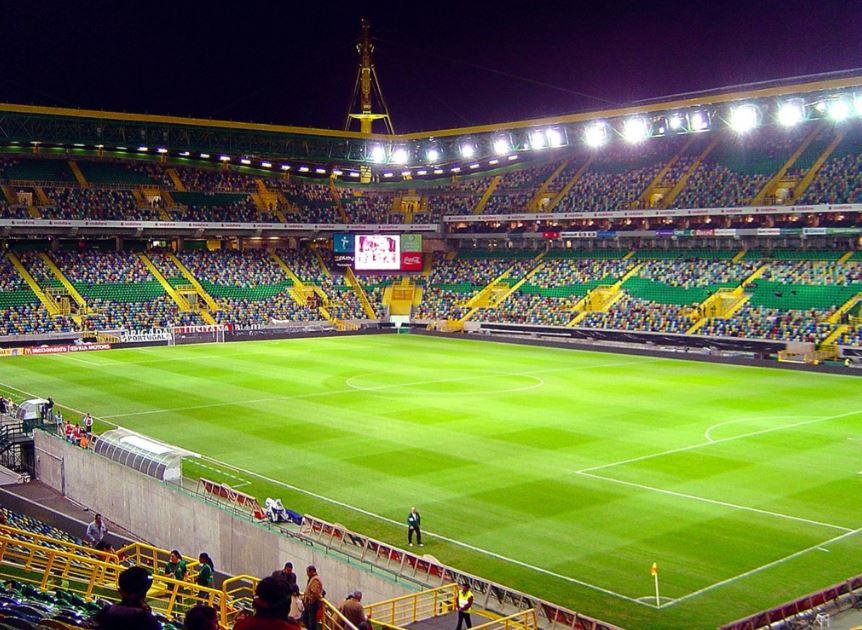
3. Estádio do Dragão
- Location: Porto
- Capacity: 50,033
The Estádio do Dragão or the “Dragon Stadium,” is the fantastic home stadium of the football club FC Porto, located in the second-largest city in the country, Porto. It was also built in 2003 for the UEFA Euro 2004 Championships (which Portugal nearly win after being beaten in the final by Greece) and has a seating capacity of 50,033.
The stadium has a modern and iconic design, featuring a large dragon statue on the outside and a distinctive roof structure. The third-largest stadium in Portugal hosted the UEFA Europa League final in 2011 and the UEFA Nations League final in 2019.
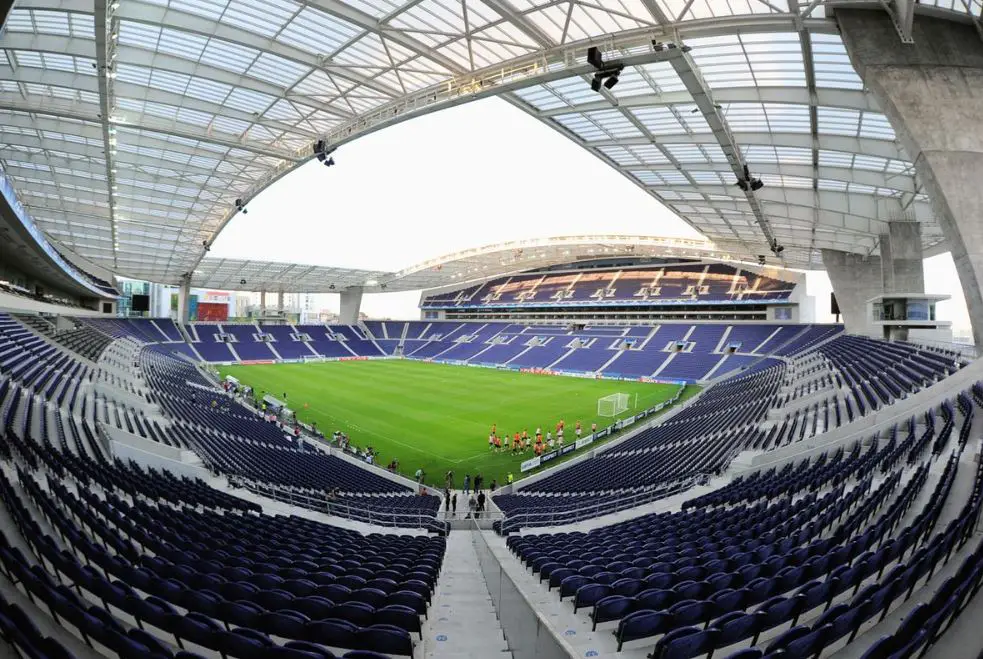
4. Estádio Nacional
- Location: Oeiras
- Capacity: 38,593
The Estádio Nacional is a multi-purpose stadium located in Oeiras, a western suburb of Lisbon. The stadium was built in 1944 and was the largest stadium in Portugal at the time. It has undergone several renovations and upgrades, and currently has a seating capacity of 38,593.
The stadium has been used for football matches, as well as other sporting events such as athletics, and it is also used for concerts and other cultural events. It has also hosted several important football matches, such as the Portugal national team’s home matches and it serves as the annual venue of the final of the Portuguese Cup.
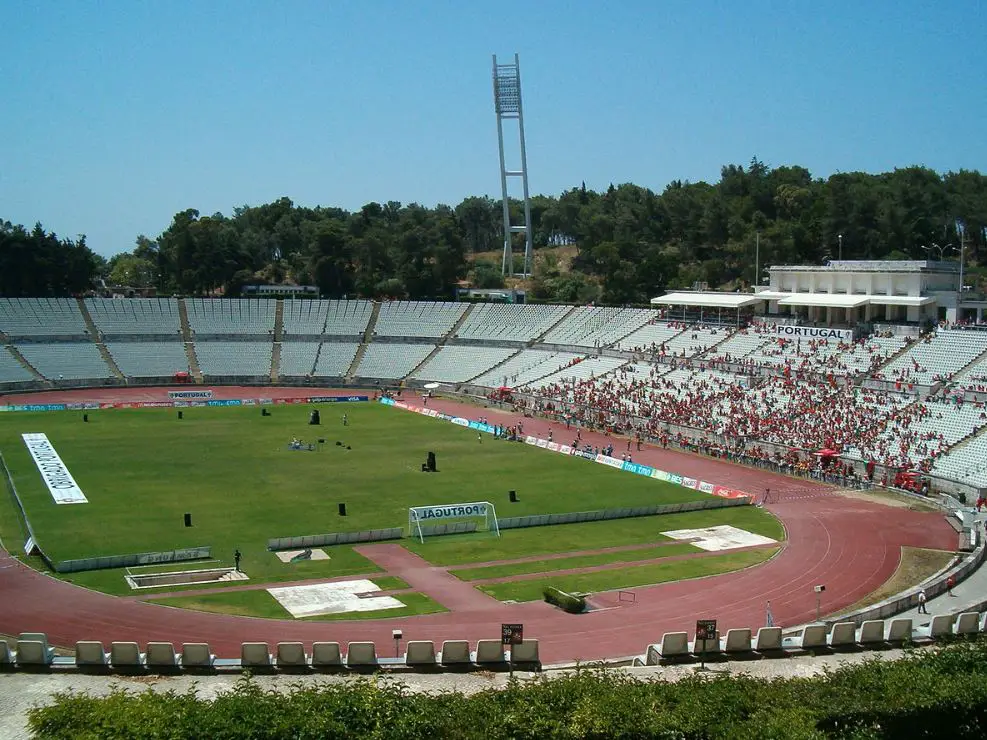
5. Estádio Municipal de Aveiro
- Location: Aveiro
- Capacity: 32,830
The Estádio Municipal de Aveiro is a football stadium located in the city of Aveiro and the stadium is the home of the Portuguese football club S.C. Beira-Mar. It has a seating capacity of around 32,830 and is in my opinion one of the most beautiful stadiums in Portugal.
It’s also considered one of the most modern stadiums in Portugal and has a distinctive design, with a large metal roof that covers the seating areas. Estádio Municipal de Aveiro has hosted several important football matches, including 2 games of the UEFA Euro 2004 championship, 5 matches of the Portugal national team, and 11 matches of the Supertaça Cândido de Oliveira which is the Portuguese Super Cup.
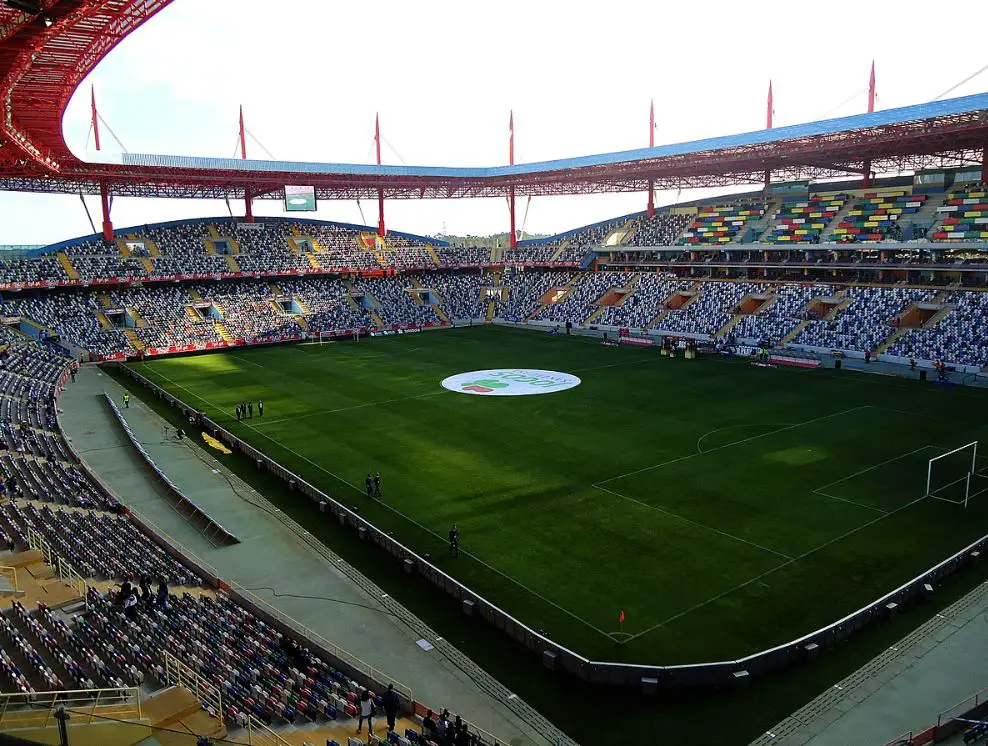
6. Estádio Algarve
- Location: Faro
- Capacity: 30,305
The Estádio Algarve is a football stadium located in the town of Faro in the utmost southern part of Portugal and has a seating capacity of 30,305. It serves as the home of two Portuguese football clubs, Farense S.C. and Louletano D.C.
The stadium has a distinctive design, with a large white canopy that covers the seating areas and provides shelter for spectators in case of rain. This design feature gives the stadium a unique and modern look in the remarkable landscape of the Algarve region, a popular tourist destination in Portugal.
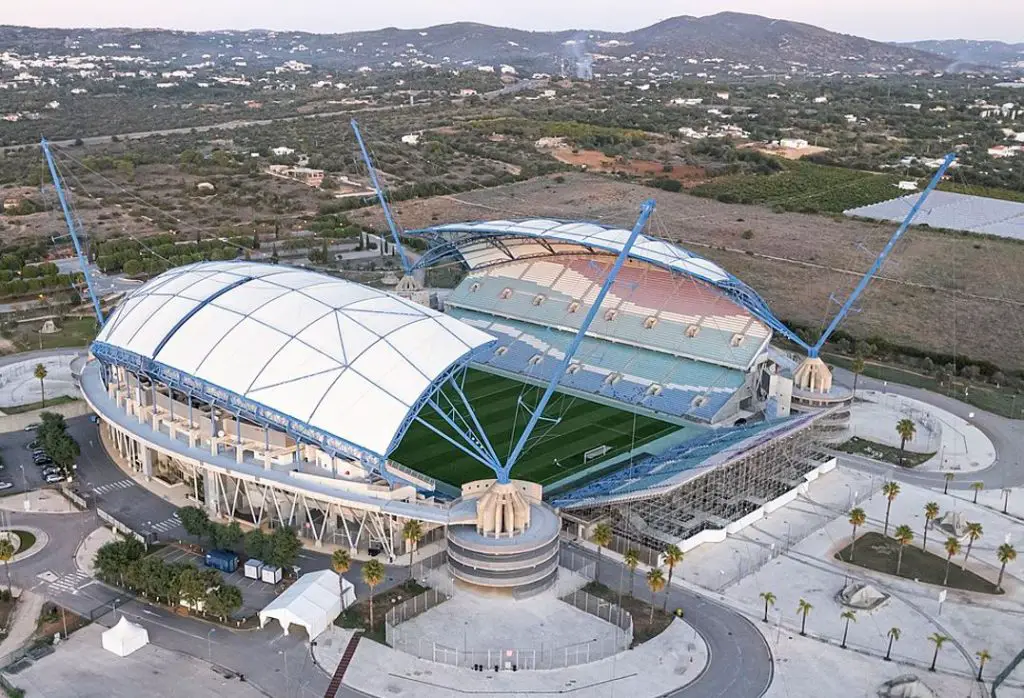
7. Estádio Municipal de Braga
- Location: Braga
- Capacity: 30,286
The Estádio Municipal de Braga, also known as The Quarry, is a football stadium located in the city of Braga. Its nickname refers to the fact that it was constructed against a steep cliff which means a lot of excavation work had to be done before it was built.
It only has two stands but features a seating capacity of 30,286. It is the home ground of Sporting Clube de Braga and has hosted several other important matches as well, including the UEFA Europa League final in 2011 and several matches of the Portugal national team.
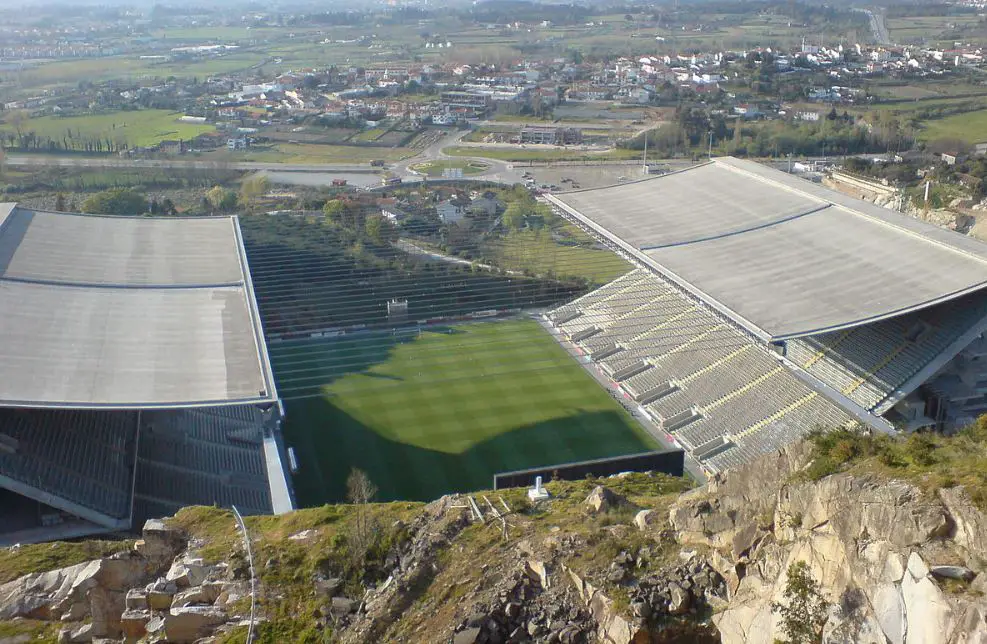
8. Estádio D. Afonso Henriques
- Location: Guimarães
- Capacity: 30,029
The Estádio D. Afonso Henriques is a football stadium located in the city of Guimarães. The stadium was built in 1965 and has a seating capacity of 30,029. It is the home ground of Vitória S.C., a popular football club in Portugal.
The stadium has undergone several renovations and upgrades over the years but is still considered to be a historic stadium in Portugal. The stadium is named after Afonso Henriques, the first King of Portugal, and this is for the simple reason that he was born in Guimarães.
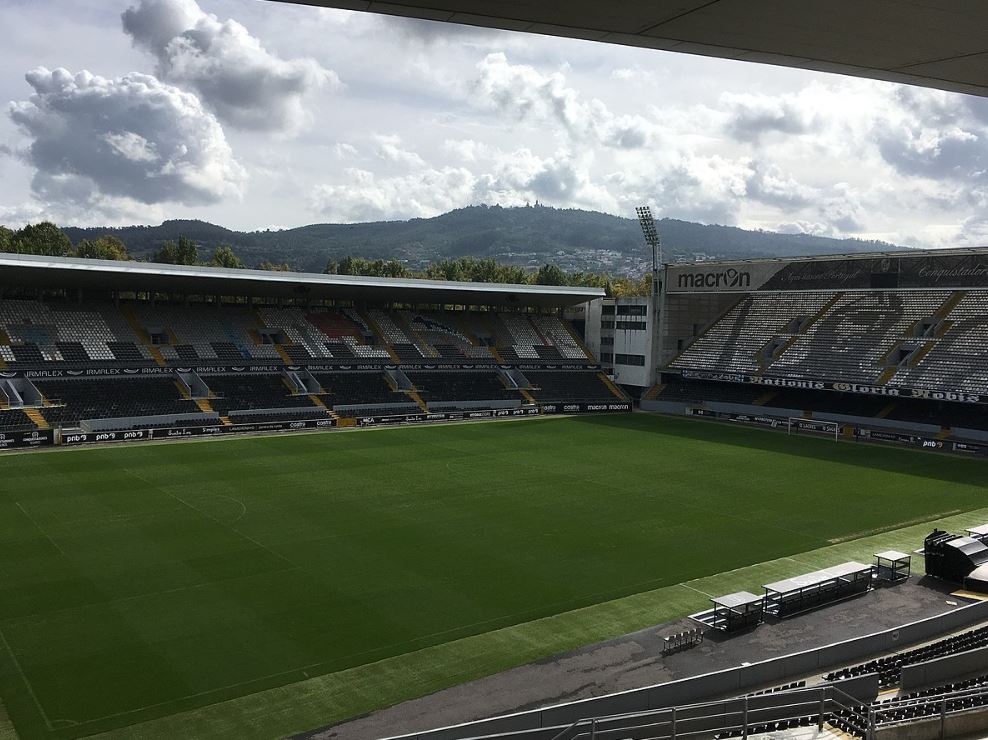
9. Estádio Cidade de Coimbra
- Location: Coimbra
- Capacity: 29,744
The Estádio Cidade de Coimbra, also known as Estádio Municipal de Coimbra, is a football stadium located in the city of Coimbra, Portugal. It was built in 2003 and has a seating capacity of around 29,744.
It has served as the home ground of Académica de Coimbra ever since and was constructed next to the University of Coimbra, something that is quite unique in Portugal. It’s part of a larger complex called the Euro Stadium Project which allows hosts culture and commercial events.
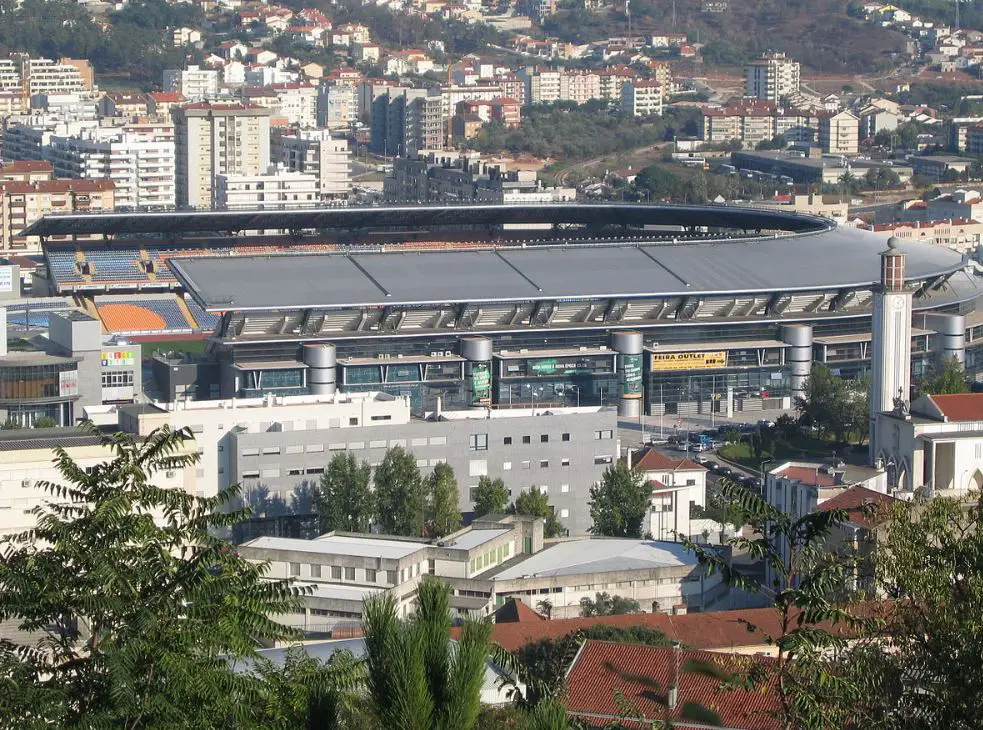
10. Estádio do Bessa
- Location: Porto
- Capacity: 28,263
The Estádio do Bessa is another football stadium in Portugal that is located in Porto, the second-largest city in the country. The stadium was built in 1972 and has a seating capacity of 28,263 today after it underwent several renovations.
It is the home ground of Boavista FC, another historic football club in Portugal. The stadium has a history that goes back to 1911 and the current stadium was completely modified in 2003 to serve as a venue for the Euro 2004 Championships.
